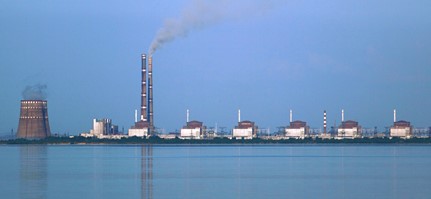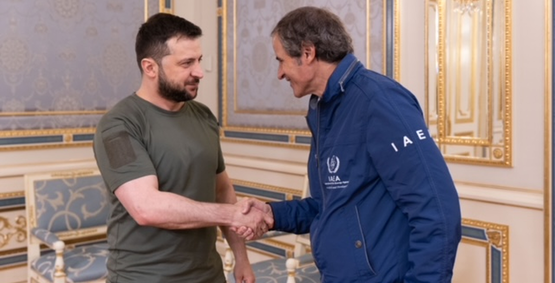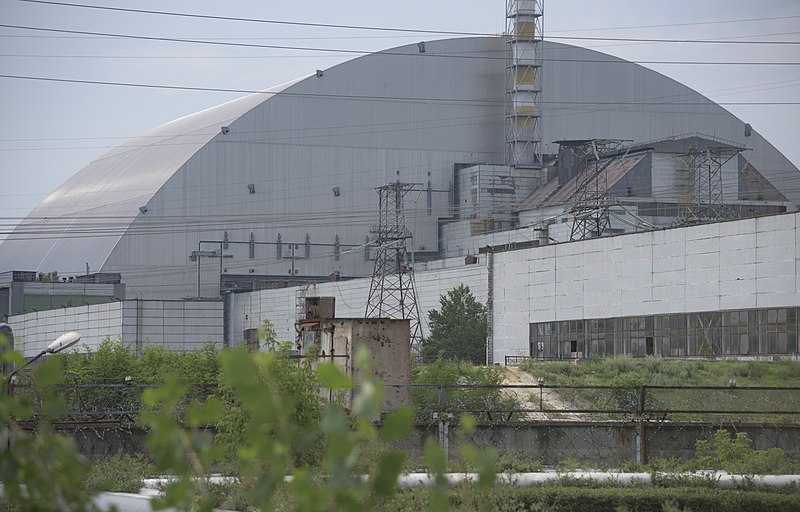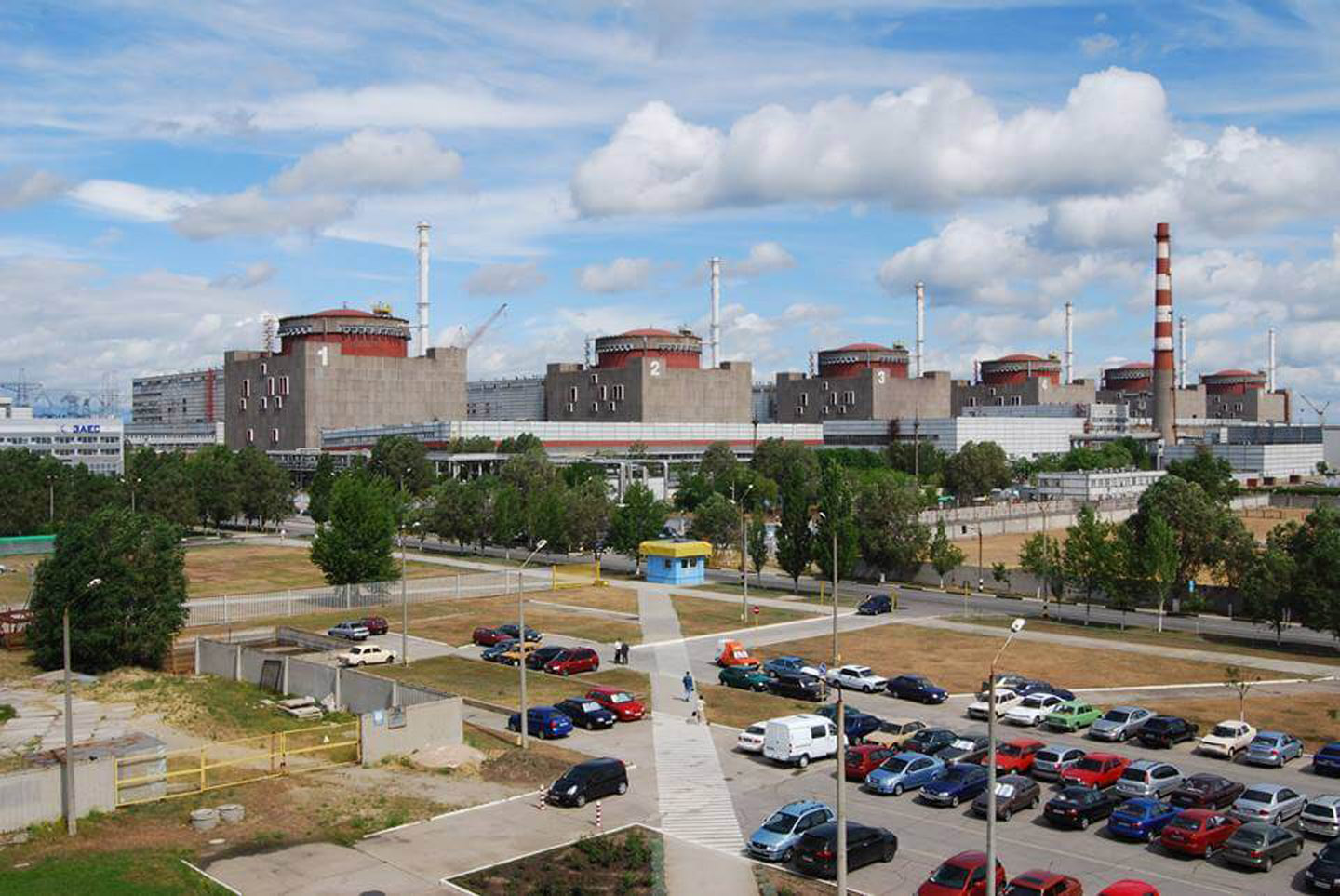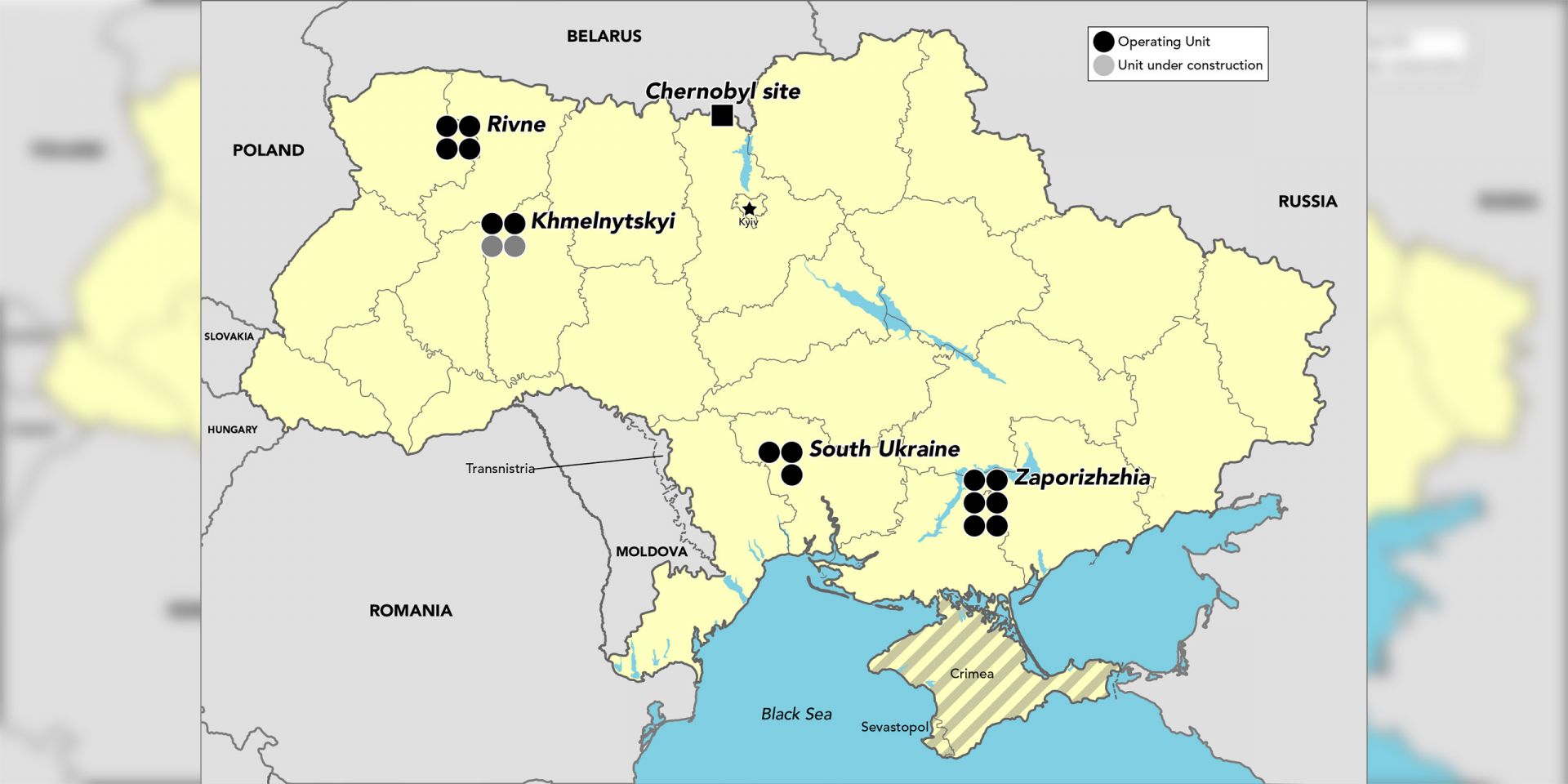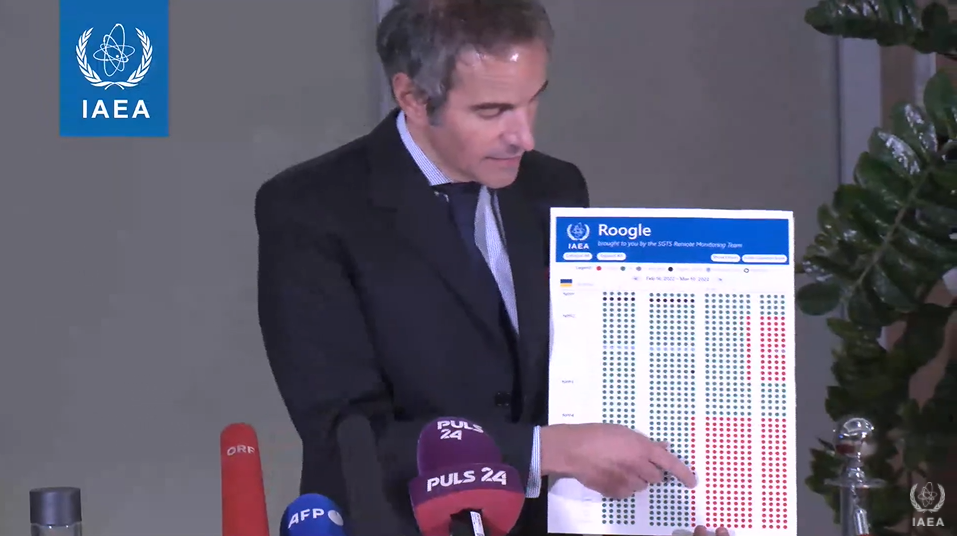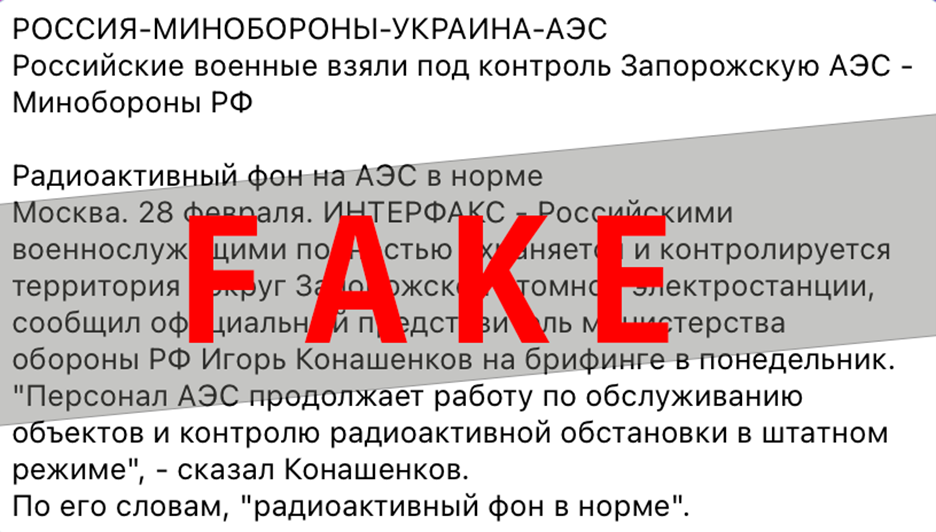A group shot of Energoatom and Westinghouse personnel at the Khmelnytskyi nuclear power plant in Ukraine, where the first two AP1000 reactors under a recent agreement will be constructed. (Photo: Westinghouse)
The war in Ukraine notwithstanding, Westinghouse Electric Company has stepped up its partnership with Energoatom, Ukraine’s state-owned nuclear utility, signing agreements last week to supply all of the nuclear fuel for the country’s operating reactor fleet and to collaborate on the construction of nine AP1000 units for Ukraine, rather than the five earlier envisioned.
Ukraine’s president, Volodymyr Zelensky, thanks IAEA director general Rafael Mariano Grossi for the agency’s support, including its April 26 mission to Chernobyl. (Photo: IAEA)
The director general of the International Atomic Energy Agency, Rafael Mariano Grossi, led a mission to Ukraine’s Chernobyl nuclear plant this week to address ongoing radiological safety concerns at the shuttered site following five weeks (February 24–March 31) of Russian military occupation.
The New Safe Confinement structure over the damaged fourth reactor at the Chernobyl nuclear power plant. Photo from 2018.
Ukraine’s nuclear operator, Energoatom, announced yesterday that the Russian military has withdrawn from the Chernobyl plant and surrounding area. “According to the staff of the Chernobyl nuclear power plant, there are now no outsiders on-site,” Energoatom stated in an online post. Russian forces took control of Chernobyl on February 24, day one of the invasion.
In a separate post, the company said that the Russians had formally agreed to return the responsibility for Chernobyl to Ukraine. It shared a scan of a document, with the heading “Act of acceptance and transfer of protection of the Chernobyl nuclear plant,” purportedly signed by a representative of Russia’s National Guard, a representative of Rosatom, Russia’s state atomic energy corporation, and a Chernobyl plant shift manager.
March 30, 2022, 11:55AMANS Nuclear CafeJacopo Buongiorno, Steven Nesbit, Malcolm Grimston, Lake Barrett, Matthew L. Wald, and Andrew Whittaker The six reactors at the Zaporizhzhia nuclear power plant in southeastern Ukraine.
On March 4, Russian forces set fire to an office building at Ukraine’s Zaporizhzhia nuclear power plant, raising fears about reactors being damaged. The attack stirred up memories of the Chernobyl accident in 1986, a reaction that longtime nuclear opponents are taking advantage of to rekindle their cause. However, the reactors operating in Ukraine today are profoundly different from the design used at Chernobyl, and are, by nature, difficult to damage.
Let’s set the record straight and explain the risks of nuclear power plants in war zones.
At the press conference, Grossi explained that the IAEA has stopped receiving safeguards information from certain monitoring systems installed at Ukrainian nuclear facilities, as indicated by the red dots.
IAEA director general Rafael Mariano Grossi traveled to Antalya, Turkey, on March 10 to meet with Ukrainian foreign minister Dmytro Kuleba and Russian foreign minister Sergei Lavrov to discuss the safety and security of Ukraine's nuclear facilities. After returning to Vienna, Grossi held a press conference at which he said that a “common denominator” had emerged from the discussions and that both sides agree that something needs to be done. “They are both ready to work and to engage with the IAEA,” he said. “So this is a very important building block.”
Energoatom’s Zaporizhzhia plant, in southeastern Ukraine. (Photo: Energoatom)
Latest on Zaporizhzhia: As of this morning, Russian military forces have taken control of the Zaporizhzhia nuclear power plant in Ukraine. The Russian military began shelling the Zaporizhzhia nuclear plant in southeastern Ukraine, resulting in a fire at the site on Thursday.
Energoatom issued this graphic dismissing Russian claims of control of Zaporizhzhia as “fake” on February 28. (Image: Energoatom)
Denying a Russian claim of control of the Zaporizhzhia nuclear power plant, Energoatom earlier today declared that “Russian propaganda media reports that the invaders allegedly took control of the Zaporizhzhia NPP are a cynical fake.” According to Energoatom, all four of its nuclear power plants are under the control of Ukraine and are operating normally with enhanced defenses.
February 24, 2022, 9:48AMUpdated February 24, 2022, 3:10PMNuclear News A map of Ukraine and the nuclear sites around the country.
Russian forces invaded Ukraine today in what news sources are calling the largest military attack of one state against another on the European continent since World War II. These developing events follow an extraordinary meeting of the NATO-Ukraine Commission in Brussels on February 22, when NATO secretary general Jens Stoltenberg said that Russia’s recent actions constituted “serious escalation” of tensions in the region and that Russia had shifted from covert attempts to destabilize Ukraine to overt military action. Well before this juncture was reached, news outlets had questioned the readiness of Ukraine’s nuclear power fleet to operate safely in a country at war and ensure energy security, while Energoatom, which operates all of Ukraine’s nuclear power reactors, has issued assurances of safety and security.
